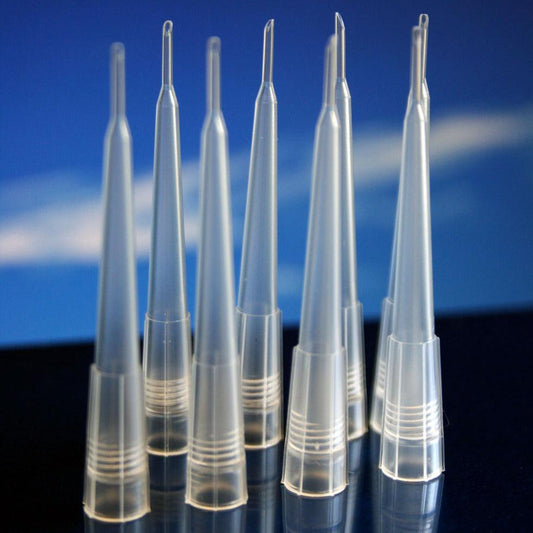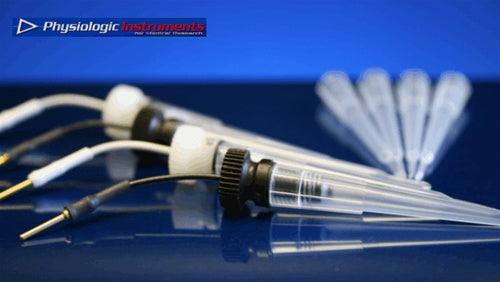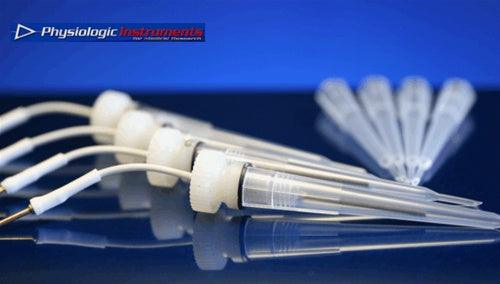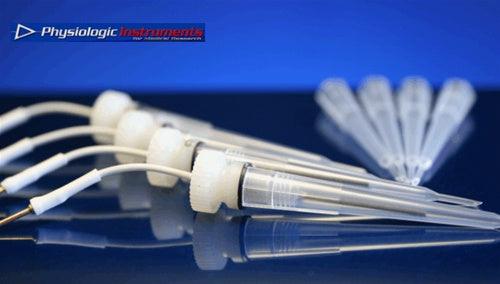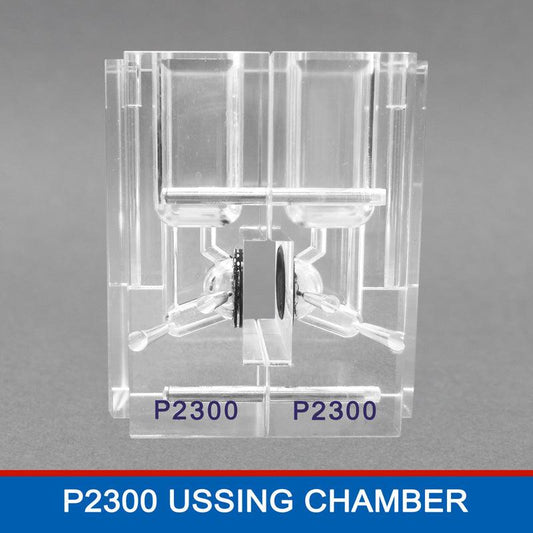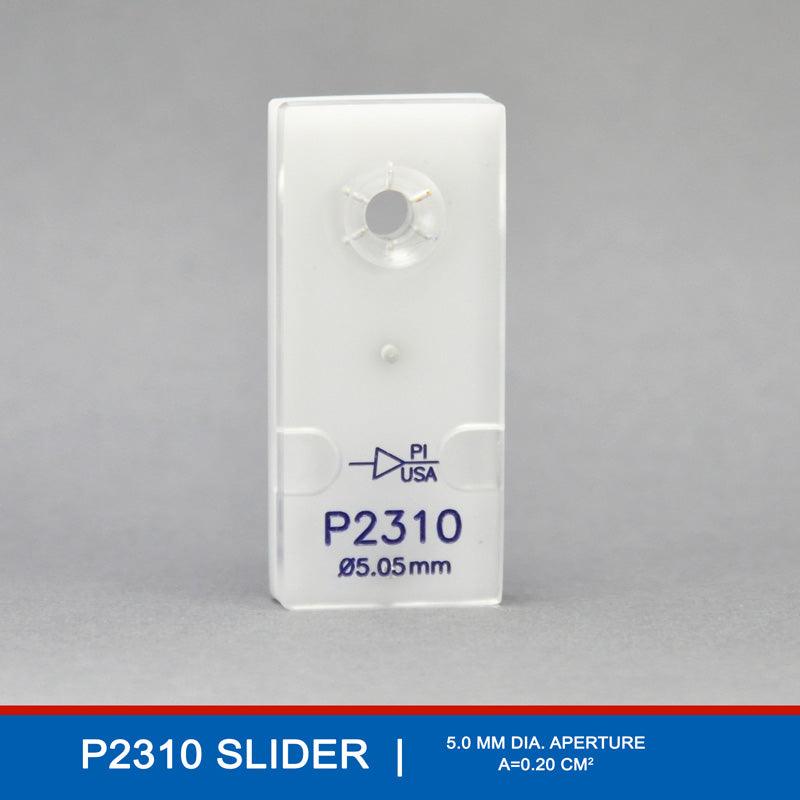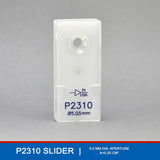P2310 EasyMount Ussing Chamber Slider
The P2310 EasyMount Ussing Chamber Slider is a precision-engineered tissue holder for the EasyMount P2300 Ussing Chamber System, designed with a 5.0 mm circular aperture (0.2 cm²) and equipped with mounting pins. This configuration stabilizes tissues like mouse intestine and bladder, providing a larger exposed area ideal for studies requiring comprehensive sampling. The mounting pins ensure sample stability, preventing movement and ensuring consistent, reproducible measurements essential for accurate physiological assessments of epithelial transport and barrier integrity.
⦿ To be used with P2300 EasyMount Ussing Chambers- Regular price
- $218.00
- Regular price
-
- Sale price
- $218.00
- Unit price
- per
EasyMount Slider Details

P2310 EasyMount Ussing Chamber Slider for Larger Tissues such as Mouse Intestine & Bladder
APETURE SIZE: 5MM | Area = 0.2 cm2
The P2310 EasyMount Ussing Chamber Slider is a versatile and precision-designed tissue holder for use with the EasyMount P2300 Ussing Chamber System, specifically tailored to facilitate detailed physiological studies on tissues such as mouse intestine and bladder. This slider features a 5.0 mm diameter circular aperture, providing an effective tissue exposure area of 0.2 cm². Its larger aperture size allows for studies on tissues that may require a broader sampling area, making it suitable for experiments that demand a balanced focus on both resolution and sample coverage.
Equipped with mounting pins, the P2310 ensures secure tissue placement, maintaining sample stability throughout the experiment and enabling researchers to achieve reproducible measurements across multiple setups. The pins provide additional structural support, essential when working with thicker or more structurally complex tissues, minimizing movement or sample distortion under various experimental conditions. As an integral part of the P2300 system, the P2310 slider contributes to precise, artifact-free data collection, making it a valuable tool for researchers focused on epithelial transport, barrier integrity, or pharmacological response studies in gastrointestinal and urinary tissues.
Instructions for the P2310 Ussing Chamber Slider
Using the P2310 EasyMount Ussing chamber slider in an experiment with the P2300 Ussing Chamber System involves careful preparation to ensure sample stability and accurate data collection. Here’s a step-by-step outline of the process:
1. Tissue Preparation
- Begin by preparing a section of tissue, such as mouse intestine or bladder, ensuring it is cut to adequately cover the 5.0 mm aperture. Place the sample in a physiological buffer to keep it viable and maintain natural cellular conditions until mounting.
2. Mounting the Tissue on the P2310 Ussing Chamber Slider
- Position the tissue over the circular aperture on the P2310 Slider. Use the mounting pins to secure it, which will provide additional stability for the sample during the experiment. The pins prevent any tissue movement that might introduce measurement artifacts, helping ensure consistency across repeated trials.
3. Inserting the Slider into the P2300 Ussing Chamber
- After mounting, insert the P2310 Slider into the P2300 Ussing Chamber, which has been preloaded with suitable solutions in each compartment. The chamber separates the tissue into two sides, typically representing the luminal and basolateral environments, to replicate physiological conditions.
4. Conducting the Experiment
- Set up the chamber with electrodes for measuring transepithelial potential difference, current, or other relevant parameters. The 0.2 cm² exposure area provided by the P2310 allows for targeted and detailed measurements, ideal for assessing ion transport, barrier properties, or the tissue’s response to applied treatments or drugs.
5. Data Collection and Analysis
- As the experiment runs, monitor and record data on parameters like ion flow or tissue permeability. The stable positioning of the tissue in the P2310 slider, combined with the P2300’s controlled chamber conditions, ensures that data is reliable and reproducible, allowing for detailed analysis of the tissue’s physiological behavior under experimental conditions.
Using the P2310 Ussing Chamber Slider in this way enables high-quality data collection and supports in-depth investigations into epithelial function, transport characteristics, and responses to various stimuli, all crucial for physiological and pharmacological studies. If you need any assistance, please contact us.

